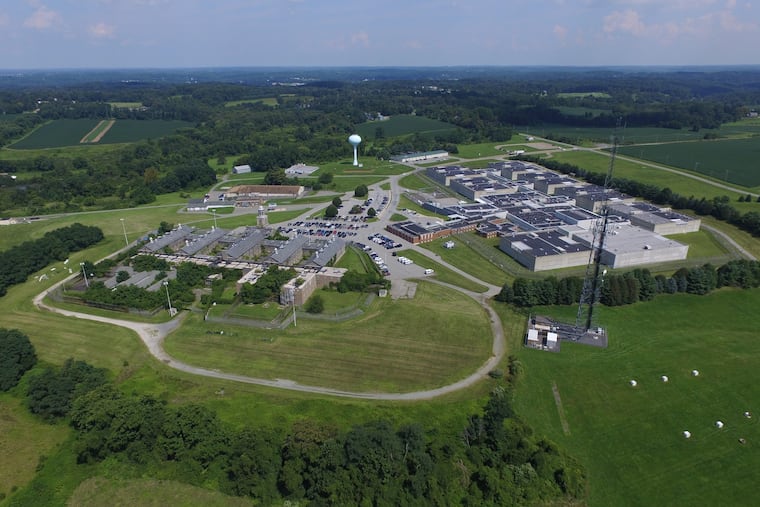24-hour toilet outage sparks tension at Delaware County prison
Water was temporarily shuttered to the George W. Hill Correctional Facility this weekend.

A cracked sewer pipe cut off the water supply to cells at Delaware County's prison this weekend, preventing its 1,883 inmates from flushing their toilets for about 24 hours, prison officials said.
The resulting smell and inconvenience at the George W. Hill Correctional Facility was debated Wednesday at a County Council meeting amid simmering tensions among political leaders over the local prison, the only privately run facility of its kind in Pennsylvania.
David Byrne, the facility's warden, made a rare appearance at the meeting, saying he wanted to dispel what he called rumors and misinformation that had been circulating about the incident.
During that explanation, Byrne clashed with Kevin Madden, a Democratic councilman who has been calling for changes in the county's prison operations. Madden said he toured the facility on Monday and spoke with 10 inmates who described stench and blocked toilets. In one cell he visited, he said, the toilet bowl was filled with human waste and the three inmates who shared the space had been wrapping the bowl in cellophane to mitigate the smell.
"I know this isn't Club Med, but there's a certain level of sanitation that needs to be maintained," Madden said, chastising the company that operates the prison for not having a contingency plan to handle this type of outage.
"I get that unforeseen accidents can occur. No one could've known the pipe would crack," he added. "What I don't have patience for is that no plan for this was in place."
Council Chairman John McBlain, a Republican, sparred with Madden, accusing the first-term councilman of taking up for anti-prison activists.
"I just want the facts available, not some hysterical story to further a political agenda," McBlain said. "We should make decisions based on facts, not political agendas."
Byrne responded that the prison does have contingency plans in place and followed them. He said an internal audit of the response to the water outage was underway.
"We moved swiftly to protect inmates and the community at large," Byrne said, later telling Madden that he must "humbly disagree" with the version reported to the councilman by some of the inmates.
The council discussion was sent against the backdrop of a long-simmering debate over whether George W. Hill should remain privatized. The facility is operated by the GEO Group, the second-largest private prison firm in the world. Delaware County's contract with the Florida-based corporation expires in December, and the county is in the middle of fielding bids for running the prison.
Simultaneously, a growing contingent of grassroots activists, some of them former inmates, has become more vocal in recent months. One group, the Delaware County Coalition for Prison Reform, held a public forum in September extolling the benefits of making the prison publicly run. In the meantime, GEO has been beset by rampant reports of suicide and violence, most of which that have become public through legal action.
Byrne, reading from prepared comments at Wednesday's meeting, said staff at the prison discovered a crack in the water main leading from the municipal line to the prison's wastewater treatment plant about 12:30 a.m. Saturday. Water to the sinks and toilets in the facility was shut down as the pipe was repaired, with water restored to the sinks later that day, Byrne said.
It took somewhat longer for the toilets to return to normal — a little less than 24 hours, by his estimate, a delay owed to the fact that each toilet had to be turned off and on manually.
The water was also temporarily shut off Monday, he said, as a permanent replacement pipe was fitted in place of the one that cracked. Byrne estimated that the damaged pipe was more than 100 years old, dating back to when the first prison was built on the property in Thornton.
The water outage did not affect medical or meal service, he said. As for the toilets, he said, buckets of water were made available to inmates who wanted to manually flush the toilets in their cells. Madden said the inmates he spoke with were not made aware of the availability of the water buckets.